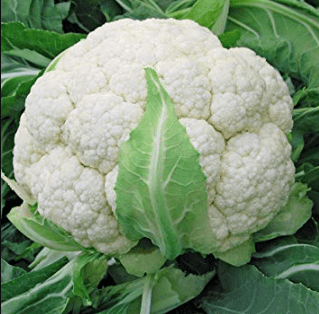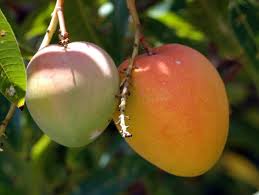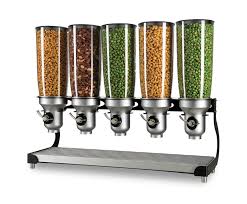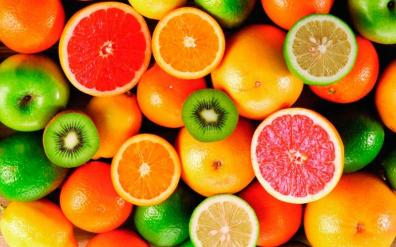Shavua tov!
Last week we left behind the month of Tevet (which in Akkadian means “that into which you sink”) and entered the month of Shvat (“that which strikes”).
Both months refer to rain, of course. And, in fact, after three weeks of dryness, the end of Tevet brought lots of rain, big drops and little drops, several days of continuous rain and mud into which we could “sink”.
Now, we’re approaching Tu B’shvat. The name of the month tells us that this is when the rain will strike before the end of winter. We hope for more rain and winter, but without the hitting part, i.e., hail, frost, and snow.
It’s Tu B’shvat, and a good time to expand your orders with more fresh fruit, not only dried fruits. The tradition of eating dried fruit on Tu B’shvat originated outside the Land of Israel when Jews received dried fruits from Eretz Israel.
We’re coming to you anyway and we have a large and exciting variety of fruits; you might as well hitch a ride on the delivery… the gas is already burnt, make the most of it.
Little by little, we are adding new organic products including soaps, deodorants, honey, olive oil, coconut oil, flour, interesting crackers, and cookies…. all from carefully picked local producers; I am truly proud of each producer. I believe in their products and want to support them and other local organic producers. Actually, we’d love to put all international and global agriculture companies out of business:)
We also have a variety of more traditional foods, e.g., legumes, grains, and pasta, all organic of course. And, we have organic and ecological detergents and hygiene products that are hypoallergenic and biodegradable, and contain no SLS or similar chemicals. Such products are harmless to both us and the environment.
If we are missing a product you'd like to have, please let us know. Also, I would love to hear your opinions and thoughts on any subject, or even just a note with an idea you’d like to express.
Brocco-li, Brocco-lach, Organic broccoli-l’kulam!!
And amazing cauliflower, too. What a family.
In short, it was really really really cold, so cold that nothing moved. Just as a refrigerator slows the ripening of vegetables, the outside temperature was so cold at night that nothing moved. Week after week, crops looked the same…frozen in their development stage. [But, my little almond tree (shkediya,) that is growing out of a rock and therefore stays small, is blooming! Tu B’shvat is coming…]
Broccoli and cauliflower are cruciferous, members of the cabbage family, and species of the "wild cabbage" Brassica oleracea. As with cabbage and Brussel sprouts, broccoli and cauliflower were developed by artificial selection, similar to kale and open-leaved ‘wild cabbage’.
The method of artificial selection involves repeatedly selecting seeds from plants with certain properties for many generations, until a new species with the desired characteristics is genetically developed.
All parts of plants in the cabbage family are edible, although we are usually accustomed to eating only part of each. Here are some members of the cabbage family: radish and turnip (we eat the root), kohlrabi (we eat the thickened stem)
, cabbage and kale (we eat the leaves), broccoli and cauliflower (we eat mainly yet-to-bloom flowers).
However, broccoli and cauliflower leaves are also tasty and have great nutritional value. According to my children, the most delicious part of broccoli is hiding in the stem. So if you receive more parts of cabbage family plants with your order, use them all.
And back to artificial selection – I think it's so cool! Once there was an entirely edible wild cabbage with leaves, flowers, and stems. One grower loved the leaves and, for seasons, years, and generations, kept saving the seeds from plants with the broadest and largest leaves… That farmer gave us our cabbage. Another farmer loved the flowers and patiently and carefully kept seeds only from plants with large wide inflorescent heads. That farmer developed broccoli and cauliflower for us. To me that is cool!
Healthwise, extensive studies on broccoli and the cabbage family show that they help prevent various cancers, are good for the heart, prevent UV damage, and clean toxins from our bodies. The cabbage family is rich in vitamin C, calcium, magnesium, potassium, and dietary fiber, and is best eaten fresh and raw.
Young broccoli sprouts have more of all the reinforcing and protecting nutrients than the mature plant. It is very easy to incorporate fresh broccoli sprouts into dishes. Add them to your order.
So, eat your vegetables! Eat your sprouts!!!!!!!
To your health,
Maggie and the Garden Team
We expect in our organic vegetable baskets (draft only):
broccoli
cauliflower
Onions
coriander
cabbage
Cucumbers
Pakchoi
Tomatoes
Peppers
lettuce
And Dill
In the larger organic vegetable baskets, also:
Lettuce
Swiss Chard
parsley
Fennel
Organic fruit baskets;
Bananas
Sweetie
Clementines
Oranges
In the larger organic fruit baskets;
grapefruit
More bananas
And more oranges














